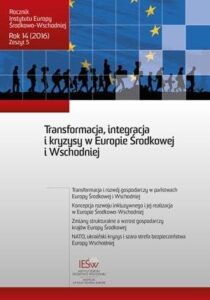Integration with the European Union and Changes on the LabourMarkets of Central and Eastern European Countries
Abstract:
The accession of Central and Eastern European countries to the European Union meant the beginning of their operation at a much wider market. This resulted in processes of deep transformations reflected in different economic areas. One of such areas is labour market. The key role of the market stems from the fact that it reflects all phenomena and processes that take place in the economy. Therefore, an analysis of labour markets in Central and Eastern European countries after their accession to the EU is an important research task. The goal of the author was the analysis and assessment of the major changes on the labour markets of the CEE countries and labour market policies implemented. Additionally, the research was to give the answer to the question: whether the theoretical effects of the integration process occurred in the economic reality of the member states of Central and Eastern Europe and led to the improvement in the situation on their labour markets. The analysis was to provide a basis to verify the hypothesis that in the period under scrutiny the economic integration with the European Union did not contribute to the improvements of the functioning of labour markets in different CEE countries equally. Using such research methods as a method of statistical data analysis, the method of inference and description a few conclusions were drawn. Essentially, they confirm the claim that the positive effects of economic integration in the field of labour markets in the new member countries of the CEE have not yet been fully achieved.

PDF: Download